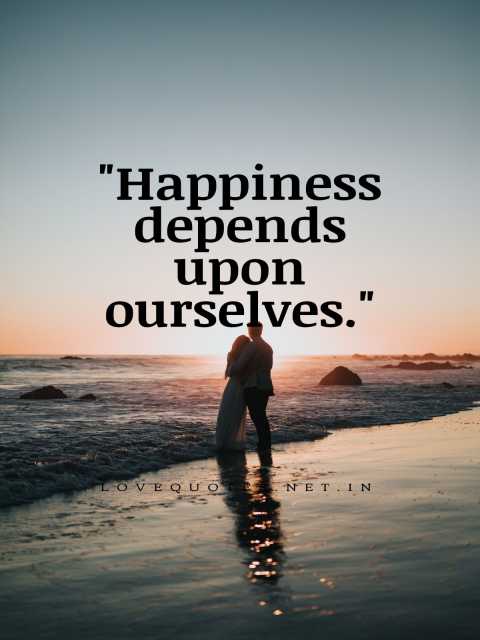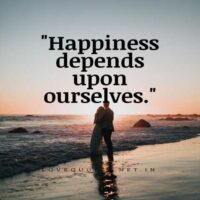Aristotle (384-322 BCE) was a Greek philosopher and polymath who made significant contributions to various fields, including ethics, logic, metaphysics, and biology. He was a student of Plato and a teacher of Alexander the Great. Aristotle’s works, such as “Nicomachean Ethics” and “Politics,” continue to influence Western philosophy and thought.
“Happiness depends upon ourselves.”

Aristotle Quotes
“The whole is more than the sum of its parts.”
“We are what we repeatedly do. Excellence, then, is not an act but a habit.”
“It is during our darkest moments that we must focus to see the light.”
“The worst form of inequality is to try to make unequal things equal.”
“The educated differ from the uneducated as much as the living differ from the dead.”
“Pleasure in the job puts perfection in the work.”
“Knowing yourself is the beginning of all wisdom.”
“The roots of education are bitter, but the fruit is sweet.”
“In all things of nature, there is something of the marvelous.”
“The aim of art is to represent not the outward appearance of things, but their inward significance.”
“The more you know, the more you know you don’t know.”
“To be conscious that we are perceiving or thinking is to be conscious of our own existence.”
“All human actions have one or more of these seven causes: chance, nature, compulsion, habit, reason, passion, and desire.”
“The energy of the mind is the essence of life.”
“It is not enough to win a war; it is more important to organize the peace.”
“Nature does nothing in vain.”
“The secret to humor is surprise.”
“The worst misfortune that can happen to an ordinary man is to have an extraordinary father.”
“Quality is not an act, it is a habit.”
“The ultimate value of life depends upon awareness and the power of contemplation rather than upon mere survival.”
“Friendship is a single soul dwelling in two bodies.”
“The aim of the wise is not to secure pleasure but to avoid pain.”
“The law is reason, free from passion.”
“A friend to all is a friend to none.”
“The high-minded man must care more for the truth than for what people think.”
“It is the mark of an educated mind to be able to entertain a thought without accepting it.”
“He who is to be a good ruler must have first been ruled.”
“Man is by nature a political animal.”
“The wise man does not expose himself needlessly to danger.”
“The one exclusive sign of thorough knowledge is the power of teaching.”
“Education is the best provision for old age.”
“We make war that we may live in peace.”
“The more virtuous a man is, the less he will be swayed by his passions.”
“Misfortune shows those who are not really friends.”
“Democracy is when the indigent, and not the men of property, are the rulers.”
“The soul never thinks without a picture.”
“Character may almost be called the most effective means of persuasion.”
“Man is a goal-seeking animal. His life only has meaning if he is reaching out and striving for his goals.”
“The wise man does at once what the fool does finally.”
“Wishing to be friends is quick work, but friendship is a slow-ripening fruit.”
“Those who educate children well are more to be honored than they who produce them; for these only gave them life, those the art of living well.”
“What it lies in our power to do, it lies in our power not to do.”
“To run away from trouble is a form of cowardice and, while it is true that the suicide braves death, he does it not for some noble object but to escape some ill.”
“No great mind has ever existed without a touch of madness.”
“The greatest virtues are those which are most useful to other persons.”
“The law is reason free from passion.”
“Without friends, no one would choose to live, though he had all other goods.”
“It is easy to perform a good action, but not easy to acquire a settled habit of performing such actions.”
“The least initial deviation from the truth is multiplied later a thousandfold.”
“All men by nature desire to know.”
“Friendship is essentially a partnership.”
“To perceive is to suffer.”
“The most perfect political community is one in which the middle class is in control and outnumbers both of the other classes.”
“The greatest thing by far is to have a command of metaphor.”
“Man is the only animal capable of reasoning, though many others possess the faculty of memory and instruction in common with him.”
“All virtue is summed up in dealing justly.”
“It is not always the same thing to be a good man and a good citizen.”
These quotes encompass various topics and ideas from Aristotle’s vast body of work, covering subjects such as ethics, politics, philosophy, and human nature.




